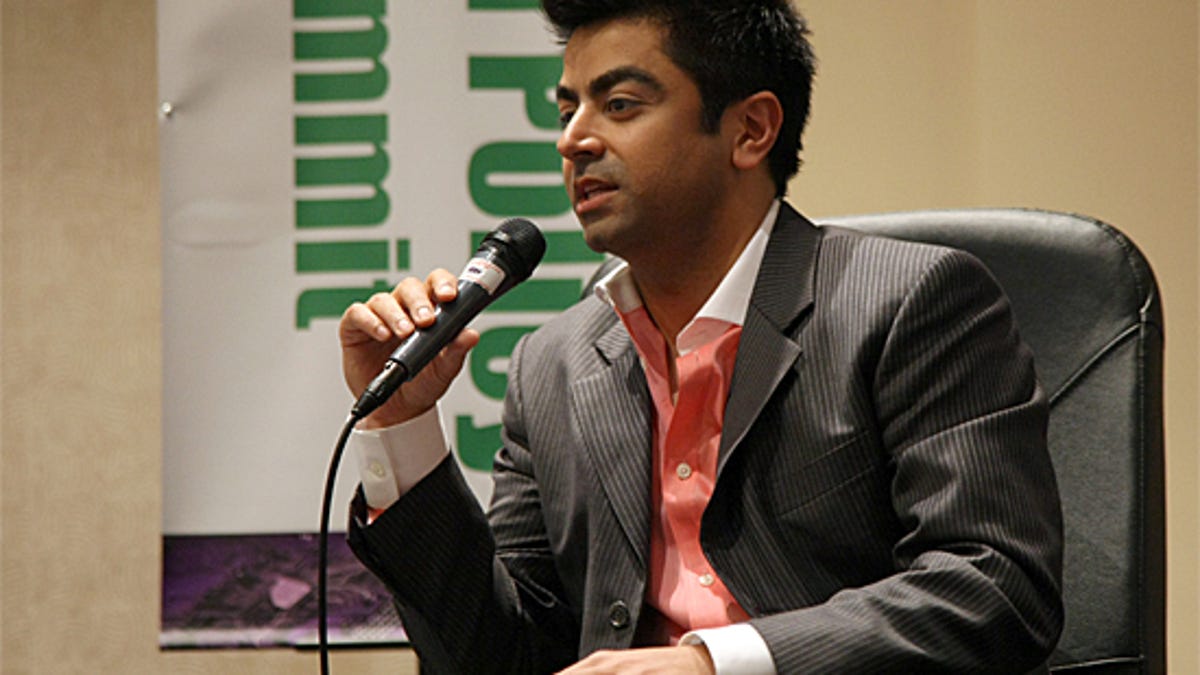BitTorrent president: Comcast agreement is a 'win'
Detente saying the cable giant will manage its network on a "protocol agnostic" basis is a good thing for anyone who develops bandwidth-intensive applications, BitTorrent says.

HOLLYWOOD, Calif.--Public pronouncements of the thaw in Comcast-BitTorrent relations continued on Thursday, with BitTorrent's president calling their newly hatched agreement a "win" for anyone who develops bandwidth-intensive applications.
Earlier on Thursday, the companies announced plans to forge a "collaborative effort" in which the cable operator would devise a method to manage its traffic on a "protocol agnostic" basis, while the file-sharing application firm would work on making the process of transferring large files work more smoothly on that network.
The agreement doesn't mean that Comcast will stop doing traffic management deemed necessary to keep its pipes unclogged at peak congestion hours, but BitTorrent President and co-founder Ashwin Navin said he's OK with that.
"Internet service providers will need the ability to shape the traffic in order to provide service," Navin told CNET News.com's Declan McCullagh during an onstage discussion at a technology policy conference here. "The win here for BitTorrent and for all peer-to-peer applications is that we will not be treated differently from other forms of Internet traffic."
The pact between the two companies arrives as the Federal Communications Commission investigates whether Comcast's admitted disruption of file-sharing uploads was a "reasonable" episode of network management or something more sinister.
Navin said he feels good about BitTorrent's relationship with Comcast, but he didn't rule out the possibility of the FCC decreeing more specific rules by which all Internet service providers should abide.
"The FCC still has other ISPs in this country it obviously needs to be vigilant over," he said, although he didn't name any specific companies.
But right now, the 55-member company based in San Francisco has no plans to develop a presence in the nation's capital, and views its role in affecting policy-making as limited.
"We're not going to be the ones who hire lobbyists, we'll leave that to the ones at Google and Microsoft," Navin said.
On copyright
Shortly after the Comcast-BitTorrent news broke, a seemingly unlikely suspect released a press release praising the deal: the Motion Picture Association of America.
MPAA President Dan Glickman called the agreement "exactly the kind of industry cooperation that is urgently needed to address the problem of online piracy," even though the joint BitTorrent-Comcast press release made no mention of copyright infringement matters.
Navin, for his part, said he wasn't "quite sure" where the MPAA got that impression. He did, however, say that he received a call from the organization Thursday morning, and it appears to be on board with "making sure whatever we do...does take into account the DMCA (Digital Millennium Copyright Act) and whatever interest the copyright holders have."
It would be completely possible for Internet service providers and copyright holders to collaborate and essentially "sit" on BitTorrent streams, looking for pirated content, although such a practice could raise privacy concerns, Navin acknowledged. He suggested rights holders could benefit from embracing content delivery methods like peer-to-peer file sharing, and BitTorrent has already struck scores of those deals itself.
"I'm actually a strong believer that in the future, the whole idea of digital piracy will be not nearly as pronounced as it is today," Navin said, "because we will have innovated business models and actually found ways to monetize free flow of video."